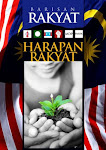Title: Mahdi Te Heu Heu
Wed 19 Jan – I met Mahdi Te Heu Heu at the library today. He hasn’t changed much for the past 6 years, I often met him at city library or on the road in town, always wore black; pants, T-shirt, vest and cap – trolley bag on tow. He wore his hair long and loose – almost 80% grey.
For those of you who have not the slightest inkling who he is, or was – he was the earliest Maori who converted to Islam back in the 80’s – I don’t remember the year, but it was probably 86 or 87. He was close to us Malay students back then and often joined us for Friday prayer.
Being in our social network, got him interested in education, and he started on lifelong journey by tackling 7th Form Mathematics back then, if I am not mistaken. Today, he told me that he just need to finish 24 points at Lincoln University (6 papers) to finish B.Com majoring in Economics and International Business. Bravo.
A lifelong passion even if takes years – you will get there one step at a time. There I found subjects that interest him – education and economics. And he never fails to enquire about our circle of friends back in the 80’s – Abd Rashid, Wak Golo, Amir, Abd Rahim, Mahmud, Roslan and the rest.
He lives in a one bedroom flat on Salisbury St in town, on his own. His wife and two children divorced him years ago. His bad experience in life probably started years ago when his daughter ran away from home. What happened? Soon after he converted to Islam, he found out that Muslim women have to cover their hair, so he made his daughter to wear scarf to school. His daughter rebelled and ran away.
Now that you read the story – what next?









